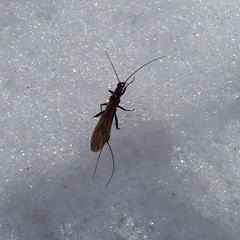Where Do Insects Go During the Winter?
Many insects are most active during the warm-weather months, when they inflict the most damage. Where do these creepy, crawly critters go during cold and harsh winter months though? How do they eat? Below are some surprising ways that insects keep warm and kicking when temperatures drop.
Options for Outdoor Insects
According to reports, many insects hibernate during the winter months, just as mammals in the wild do. This hibernation, often called diapause, is simply a time when insects go dormant during the winter months. Insects’ bodies respond to the change in daylight and availability of food during this phase of existence. Some insects simply invade homes or other sheltered areas, seeking buildings that contain indoor heating. They often thrive in these conditions if the establishment contains some moisture, whether in the form of humidity, a leak, or pet water bowls.
Some insects, such as butterflies and other flying insects, also migrate south during the winter season. Often, these insects will stay and die in their new locations, depending on their lifespans. However, other insects ride the summer winds to come back an invade their former areas once the weather becomes warmer. Still others are able to stay outside during the winter by utilizing a process known as activation. This process allows them to keep their bodies warm during the cold months, without interfering too much with their daily tasks. Honeybees are an example of this, as they will often generate bodily heat by residing in hollow trees and eating massive amounts of honey.
Keeping Insects out During the Holidays
Insects just may want to join in on some indoor holiday cheer this winter, and they will more than likely extend their stay until after the New Year. Fortunately, there are preventative steps you can take to keep these critters out, such as keeping holes, cracks, or openings in your home covered. This will prevent such creatures from crawling in to seek shelter from the cold, harsh winds, rain, or snow. Reducing moisture levels by purchasing a dehumidifier or checking for leaks may also be helpful, as many insects will thrive in moist, warm conditions. Hiring a qualified pest control company may also be helpful. A winter pest is something that no one wants to deal with, so take steps now to keep your home pest free this year!



